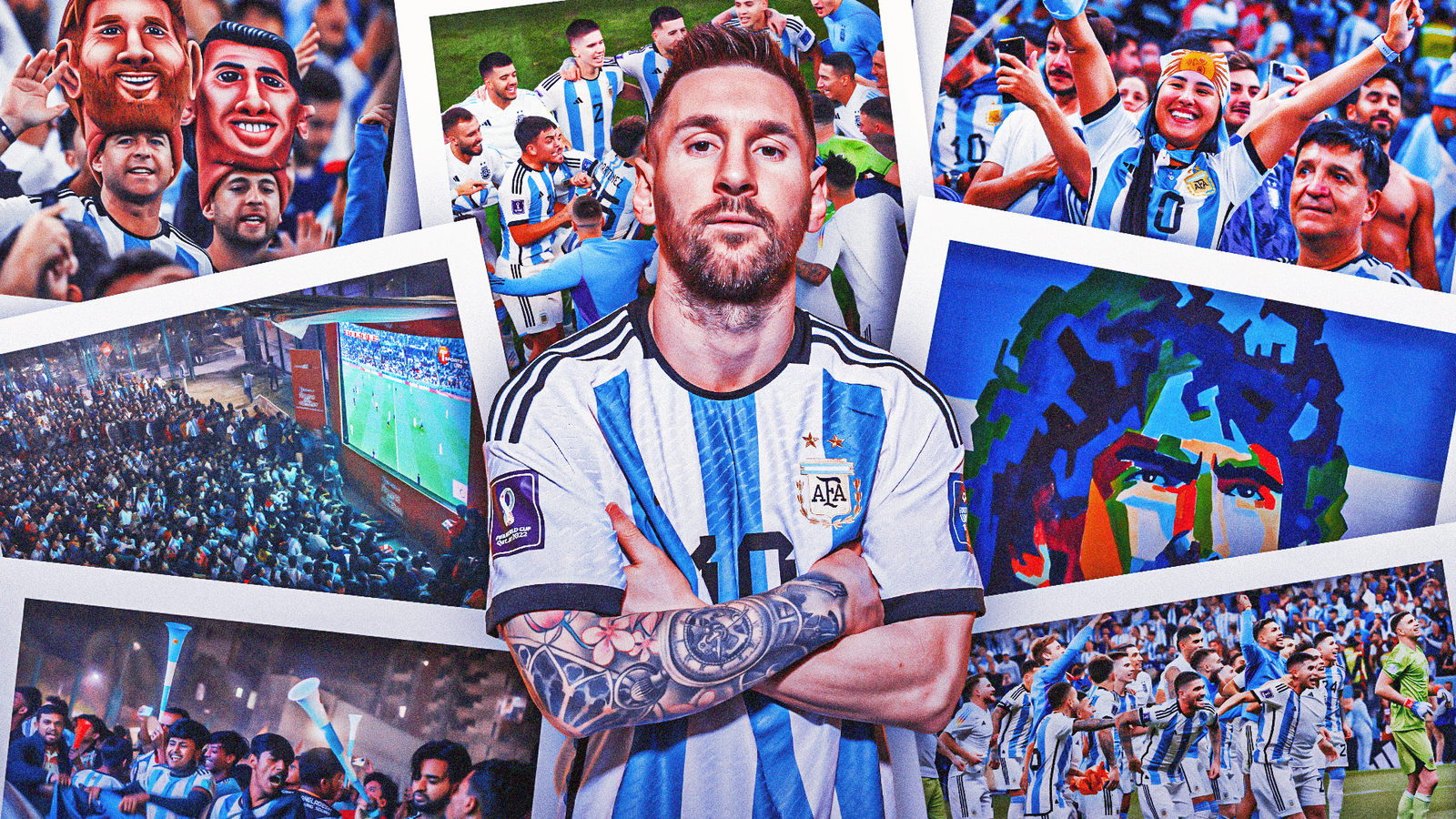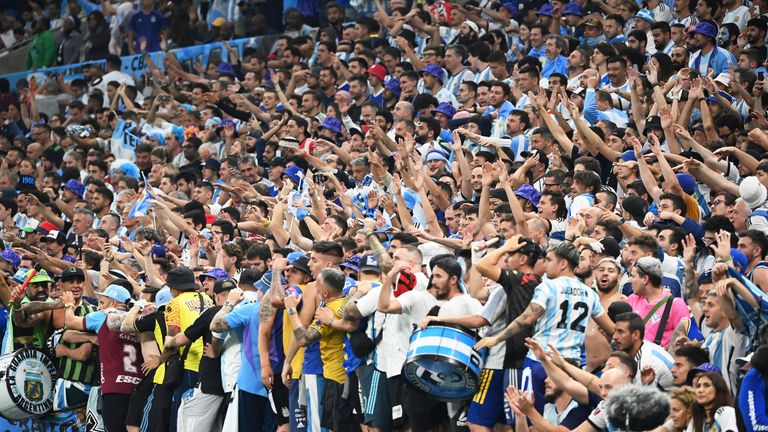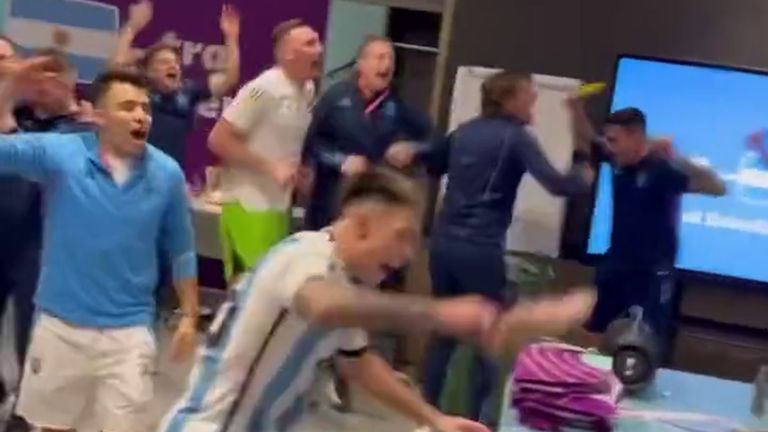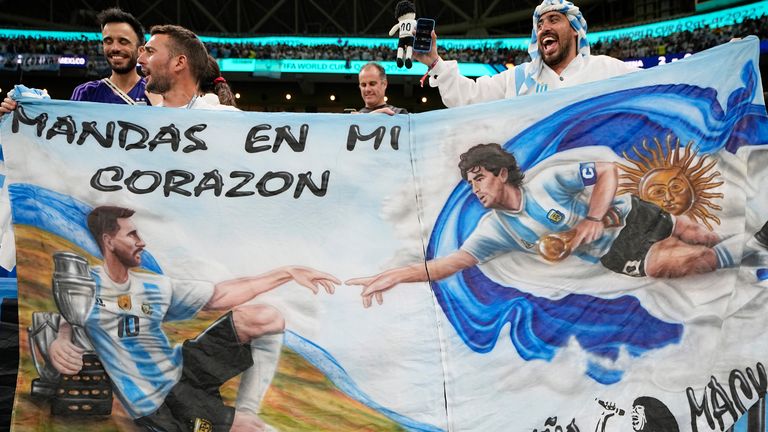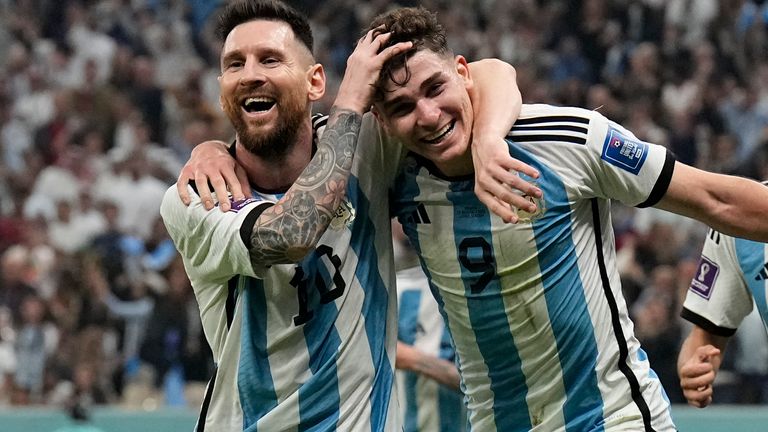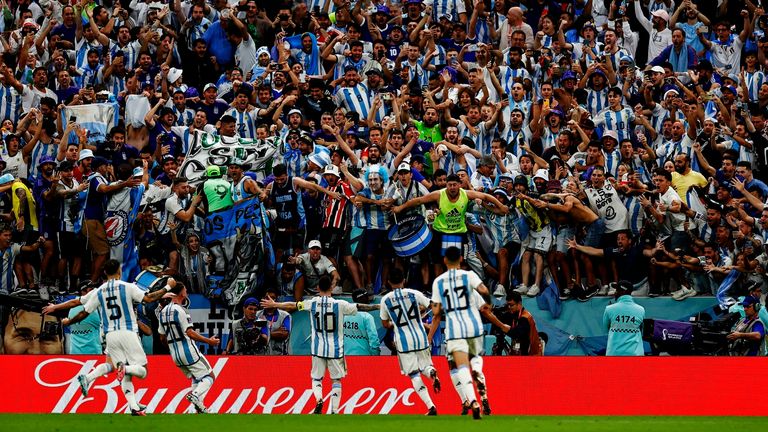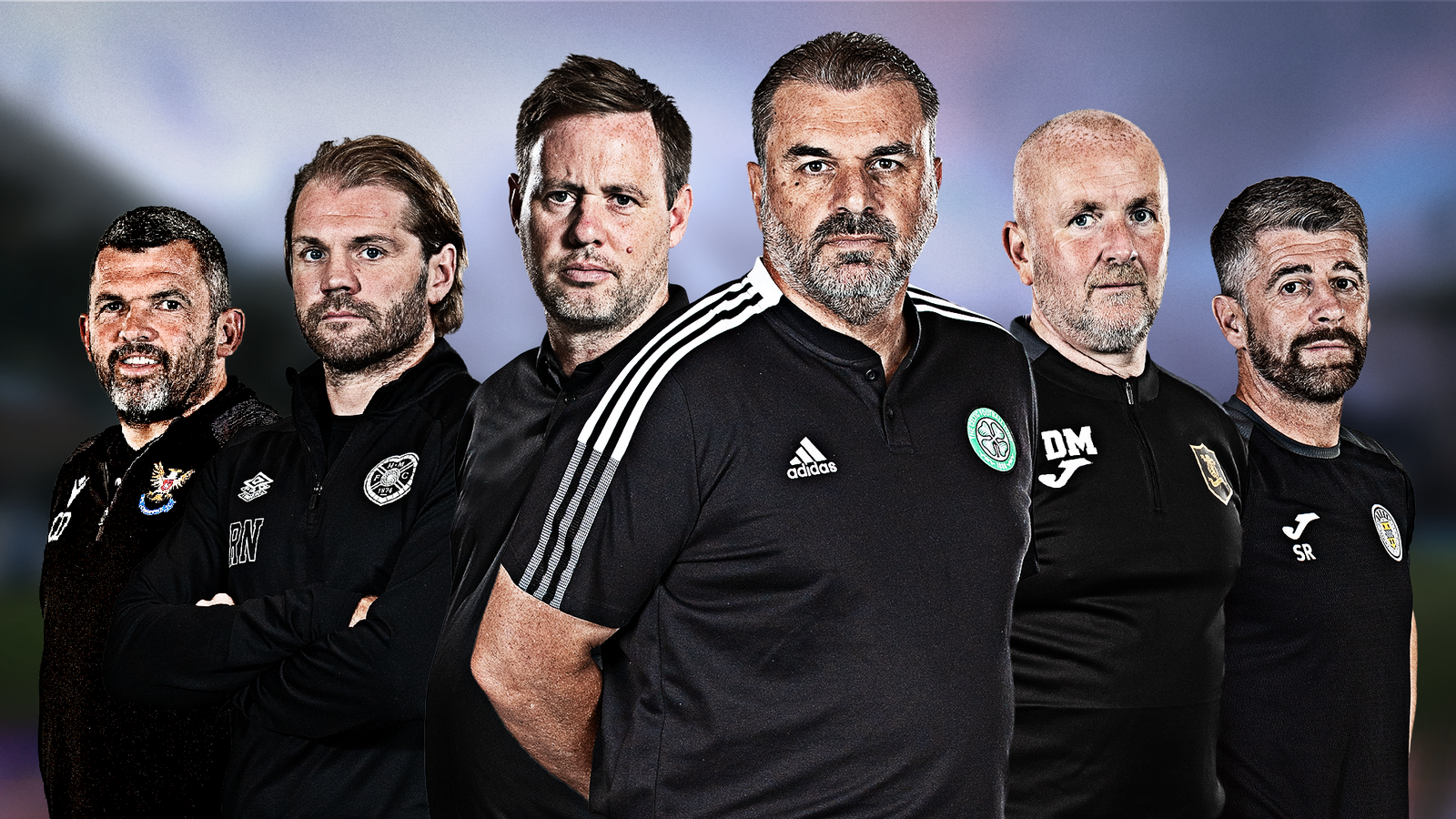[ad_1]
If you have watched Argentina at this World Cup, then you will have heard it. In fact, you will have heard it again and again. Their fans sing it constantly. Their players too. Muchachos, ahora nos volvimos a ilusionar. Boys, now we have hope again.
The song has soundtracked their tournament – both in Qatar and in cities across Argentina – and it will reverberate louder than ever when they face reigning champions France at Lusail Stadium in Sunday’s final. Win, and it will be heard on the pitch as well as off it. Most likely inside the dressing room too.
It has been that way after every game since the defeat to Saudi Arabia in their Group C opener, the atmosphere fuelled by a reported total of 40,000 Argentina fans who have travelled to Qatar, dominating the country’s arenas, and offering deafening, colourful support to Lionel Messi and his team-mates.
Their adopted anthem is based on a song called Muchachos, esta noche me emborracho (Boys, tonight I’m getting drunk), originally released in 2003 by La Mosca Tse-Tse, a nine-piece punk and reggae band from Buenos Aires who became popular during the 1990s and decided to record an updated version ahead of the World Cup.
The players love it, including Messi, who described it as his favourite football chant before the tournament. “He said ‘Muchachos’ and actually sang it,” said Guillermo Novellis, La Mosca’s frontman, in an interview with Billboard magazine.
“I mean, it’s like arriving in Rome and being introduced to the Pope.”
Novellis and his bandmates have been blown away by the anthem’s reception – “it’s something we never imagined,” he added to America TV – but its success lies in its lyrics, written by an Argentinian fan named Fernando Romero and circulated by chance.
“It is actually a song that has been adapted for several years at many stadiums in Argentina,” Gabriel Casazza, an Argentinian football journalist, explains to Sky Sports.
“The first club to start singing it were Racing Club, and it had an immediate impact, so much so that fans from other clubs in Argentina made their own versions.
“Of course, they don’t have the same lyrics, but the one created for the national team is the most emotional of them all, and the World Cup arrived when the song was booming.”
Romero, 30, was among those who first adopted the song at Racing Club, and he penned the national team version after they overcame Brazil in last year’s Copa America final at the Maracana in Rio de Janeiro, ending a 28-year wait for silverware.
Romero hoped to air the song with a group of friends inside Estadio Monumental in Buenos Aires when Argentina faced Bolivia in a subsequent World Cup qualifier, but they were unable to get tickets, instead singing it outside the ground, where a television crew from TyC Sports spotted them and started filming.
With its evocative opening line – “In Argentina I was born, the land of Diego and Lionel, of the children of the Falklands, whom I will never forget” – Romero’s rendition quickly went viral.
Novellis became aware and, after Argentina’s players were heard signing it after beating Italy in the Finalissima at Wembley in June, he asked Romero to collaborate with La Mosca on an official release.
“My dream was for a group of friends to sing it, that alone was a lot,” Romero said in an interview with Telenoche, one of many he has been asked to do in Argentina subsequently.
“I became emotional when I heard some kids signing it in the street after the game against Australia. The same when I hear it in the squares, at parties, and not to mention when the players sing it.”
His lyrics put Diego Maradona, who inspired Argentina to their last World Cup triumph in 1986 and died in 2020 at the age of 60, side by side with the man now trying to emulate him, describing him as cheering Messi on “from the sky” alongside his father, “Don Diego”, and his mother, “La Tota”.
“I wanted to make a song that leaves aside the constant comparison and competition that existed for so long between Messi and Maradona,” explained Romero. “They are both ours.”
The lyrics also pay tribute to the young men who died during the Falklands War in 1982, as well as the pain of the finals Argentina had lost, both in the World Cup, in 1990 and 2014, and in the Copa America, in 2004, 2007, 2015 and 2016, before last year’s triumph over Brazil, which, according to Romero’s lyrics, made them the “Daddy” over their old rivals again.
“They are components which have created a very strong emotional cocktail for the Argentinian people, and a very significant joining together of supporters during the World Cup,” adds Casazza.
Martin Mazur, another Argentinian football journalist currently following the team in Qatar, agrees. “The lyrics are not typical of a football chant as they weren’t born in the stands but on social media, where they went viral,” he tells Sky Sports.
“Argentina had really catchy songs at the last two World Cups, and this is clearly not an exception, but it is far more political and would probably get an A+ in storytelling for the way it is crafted.”
That is reflected in its popularity – the video for the song on YouTube has received more than seven million views – but the question now is whether this national expression of hope, and of a country seeking to exorcise, once and for all, the ghosts of its past, will finally end with Messi emulating Maradona.
On Sunday in Lusail, we will have our answer.
The lyrics for ‘Muchachos’ in full
In Argentina I was born, the land of Diego and Lionel,
of the children of the Falklands, whom I will never forget.
I can’t explain it to you, because you won’t understand,
the finals we lost, how many years I cried.
But that’s finished because at the Maracana,
the final with the Brazilians, Daddy won again.
Boys, now we have hope again,
I want to win the third one, I want to be world champion.
And Diego, in the sky we can see him, with Don Diego and with La Tota,
supporting Lionel, to be champions again.
[ad_2]
Source link

